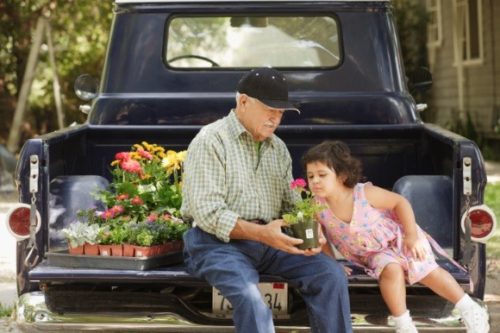Hardiness Aging on Purpose
The older I get, the more I come to see the essential role that Purpose plays in aging well.
~Patrick Roden
Boredom: The state of being weary and restless through lack of interest
-Merriam-Webster Online Dictionary
The longer I live the more I’m convinced of the power of purpose in our lives as we age. I saw proof of this daily in the hospital setting taking care of patients and their families. Countless times the wife of an ailing husband would, in quiet moments, confide in me under her breath that “he doesn’t do anything since he retired…he just sits and watches TV.”
This idleness was often the root cause of the hospitalization as chronic conditions became acute by lack of moving due simply to boredom. In nature stasis causes coagulation and ulcers to form–further, stagnant pools of water will soon become polluted. So too, are Human beings meant to be in motion to prevent these same maladies.
Ambulance Report
Years ago, I kept an ambulance report on a patient who was admitted to the intensive care unit. Here is the subjective part of the report written by the paramedics:
This 80-year-old male resides at his home in _________. Since this morning, the patient has not been himself. He has had slurred speech, eyes bulging, facial drooping left-sided weakness, and confused .HIS FAMILY DECIDED IT WAS TIME TO CALL 911 WHEN HE COULD NOT GET HIS CIGARETTE TO HIS MOUTH. A couple of days ago, the patient fell from the chair that rolled out from under him. The family denies that he was injured by the fall (Caps used by this author).
Years later I’m still astounded by that paragraph…when he couldn’t get the cigarette to his lips–that was the time to call?This patient spent his waking hours in front of the TV smoking; his outcome was not good.
Boredom
Soren Kierkegaard called boredom “the sickness unto death, “and believed that the human being is intrinsically related to what is Infinite. If we evade that truth, we find ourselves in despair – or in boredom.
To me what is Infinite has much to do with being in service to others. Some of the healthiest elders I saw in the hospital were the volunteers. The question to ask then is: Are they there because they are healthy and able? –or–Are they healthy and able because they are there? Maybe it’s a combination of both? What I can tell you is that they aren’t bored.
The Healing Power of Doing Good
In the book, The Healing Power of Doing Good, authors Allen Luks and Peggy Payne describe the concept developed by Psychologist Suzanne Kobasa of the Graduate School of the City University of New York.
Dr. Kobasa studied executives at Illinois Bell during the stressful 3.5 years when it was being separated from ATT. She found that executives who met that period’s stresses with a combination of three attitudes were least likely to become ill.
These were:
1. Felt the greatest degree of control over their own fate
2. Viewed the tasks they faced as challenges (not threats)
3. Felt a strong sense of commitment to some overriding purpose
Kobasa called these 3 ingredients “hardiness” and posits that this quality “is three times as powerful as social support and exercise put together in determining who gets sick under periods of high stress.”
A key to achieving hardiness is being able to spend some time on another part of one’s life where one can get positive feedback.
–Suzanne Kobasa, PhD
The authors conclude that all these positive attitudes and emotions are available through the act of helping. They don’t deny there can also be frustrations and difficulties in helping others–but their survey respondents overwhelmingly report volunteering to help others can improve feelings of self-determination, provide healthy challenges and rewarding feedback, and reinforce feelings of commitment to something worthy. This, in turn, produces moments of joy and lasting optimism.
________________________________________________________________________________________________
Notes
Boredom in old age is also the theme of an opera by Leos Janacek, “The
Makro poulos Case,” starring a 342-year old heroine who suffers because she
cannot die. Philosopher Bernard Williams went on to explore the question of
whether indefinite life extension would inevitably lead to boredom.
Note: Thanks to HR Moody for references on aging and boredom

